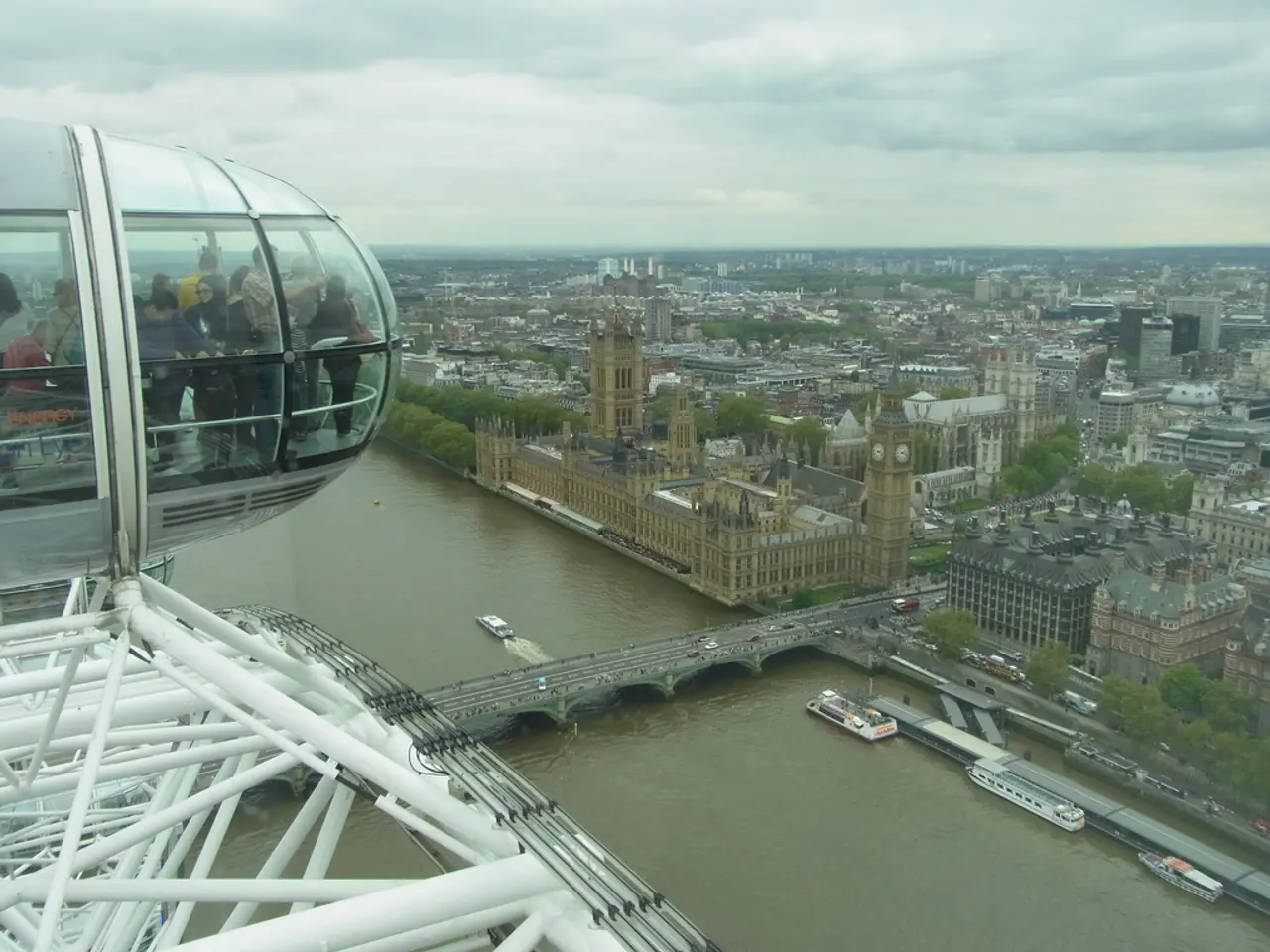British parliamentarian Rachel Reeves calls on the cabinet to stimulate domestic employment, as data shows a decline in job market numbers
The United Kingdom is grappling with a steep employment crisis, with thousands of jobs lost in various sectors and the unemployment rate reaching a four-year high. According to official figures from the Office for National Statistics, the number of employees on payroll decreased by approximately 41,000 in June. This decline could potentially be linked to the £20bn tax raid implemented by Chancellor Rachel Reeves.
The hospitality sector, in particular, has been hit hard, with over 108,000 jobs lost in the past year, and 84,000 of those losses occurring since last year’s Budget, which raised National Insurance contributions and the minimum wage. The retail and manufacturing sectors have also experienced significant job losses, with 65,500 jobs lost in retail and wholesale alone.
Economists attribute these job losses and the reduction in headcount to the tax hikes in Rachel Reeves' Autumn Budget, which have led to increased payroll costs. As a result, businesses have been forced to cut costs, leading to job losses and hiring freezes.
In an effort to boost British jobs, senior Labour figures, including Rachel Reeves and Pat McFadden, have urged cabinet ministers to prioritize the creation of British jobs, productivity-enhancing opportunities, and skills in every major contract. They also urged departments to funnel more spending to smaller firms to remove barriers restricting their competition with established players.
Pat McFadden proposed an overhaul of public procurement rules last month to give public bodies more weight to choose firms that support British jobs. The changes will apply to major projects such as transport, as well as hospital and school building. The Chancellor and Chancellor to the Duchy of Lancaster have told their colleagues to prioritize British jobs in government contracts and spending on transport and infrastructure projects.
The efforts by McFadden come as Rachel Reeves' growth agenda has taken a sharp turn downwards. The economy contracted 0.1% in June, going against economists' expectations of minor growth. The senior Labour figures emphasized the need for people around the UK to feel the full impact of government spending through investment in skills and high-quality jobs.
Industry groups like UK Hospitality have called for targeted measures such as fixing National Insurance Contributions (NICs) by extending exemptions to young people and individuals moving from welfare to work. Such measures, they argue, would reduce employment costs and encourage hiring.
While specific government measures in response to these calls are not detailed in the search results, the ongoing dialogue suggests pressure for the government to act in upcoming Budgets or policy adjustments to support job retention and creation, particularly in sectors hit hardest by the tax hikes. The International Monetary Fund has also acknowledged the significant challenges facing Chancellor Reeves in delivering a pro-growth agenda under current conditions, implying that reforms or stimulus geared toward employment might be required to reverse negative trends.
In summary, Rachel Reeves' tax policies have driven significant employment reductions, with urgent stakeholder demands for government action primarily focused on adjusting payroll tax burdens to stabilize and grow British jobs.
- The steep employment crisis in the United Kingdom, caused in part by Chancellor Rachel Reeves' tax policies, has led to the loss of over 108,000 jobs in the hospitality sector alone.
- In an attempt to reverse negative trends, senior Labour figures have proposed reforms such as overhauling public procurement rules to prioritize British jobs and productivity-enhancing opportunities, particularly in sectors like transport.
- The General News is filled with discussions about the need for the government to act, as industry groups like UK Hospitality call for measures like fixing National Insurance Contributions to reduce employment costs and encourage hiring.







